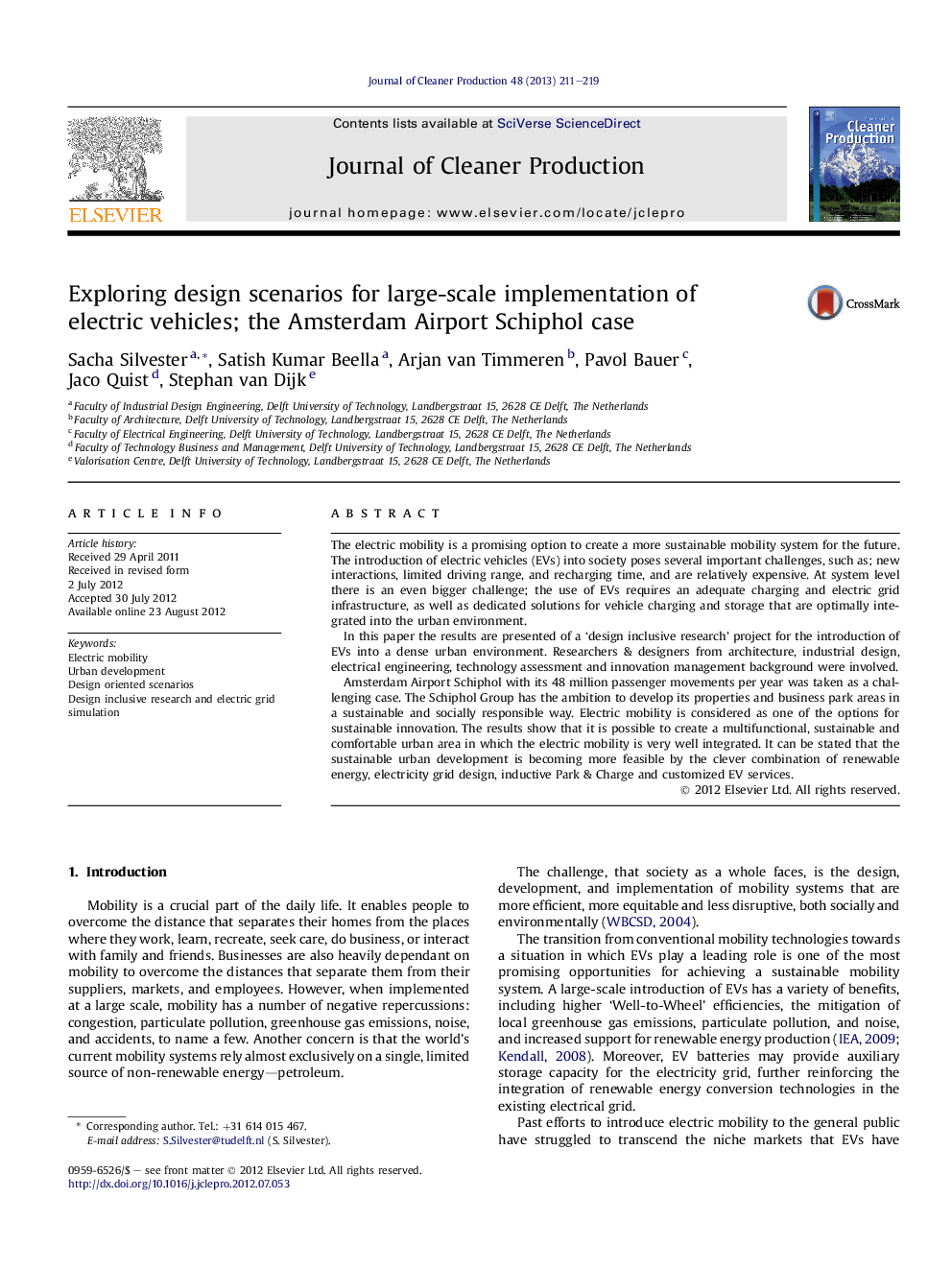| Article ID | Journal | Published Year | Pages | File Type |
|---|---|---|---|---|
| 1745416 | Journal of Cleaner Production | 2013 | 9 Pages |
The electric mobility is a promising option to create a more sustainable mobility system for the future. The introduction of electric vehicles (EVs) into society poses several important challenges, such as; new interactions, limited driving range, and recharging time, and are relatively expensive. At system level there is an even bigger challenge; the use of EVs requires an adequate charging and electric grid infrastructure, as well as dedicated solutions for vehicle charging and storage that are optimally integrated into the urban environment.In this paper the results are presented of a ‘design inclusive research’ project for the introduction of EVs into a dense urban environment. Researchers & designers from architecture, industrial design, electrical engineering, technology assessment and innovation management background were involved.Amsterdam Airport Schiphol with its 48 million passenger movements per year was taken as a challenging case. The Schiphol Group has the ambition to develop its properties and business park areas in a sustainable and socially responsible way. Electric mobility is considered as one of the options for sustainable innovation. The results show that it is possible to create a multifunctional, sustainable and comfortable urban area in which the electric mobility is very well integrated. It can be stated that the sustainable urban development is becoming more feasible by the clever combination of renewable energy, electricity grid design, inductive Park & Charge and customized EV services.
